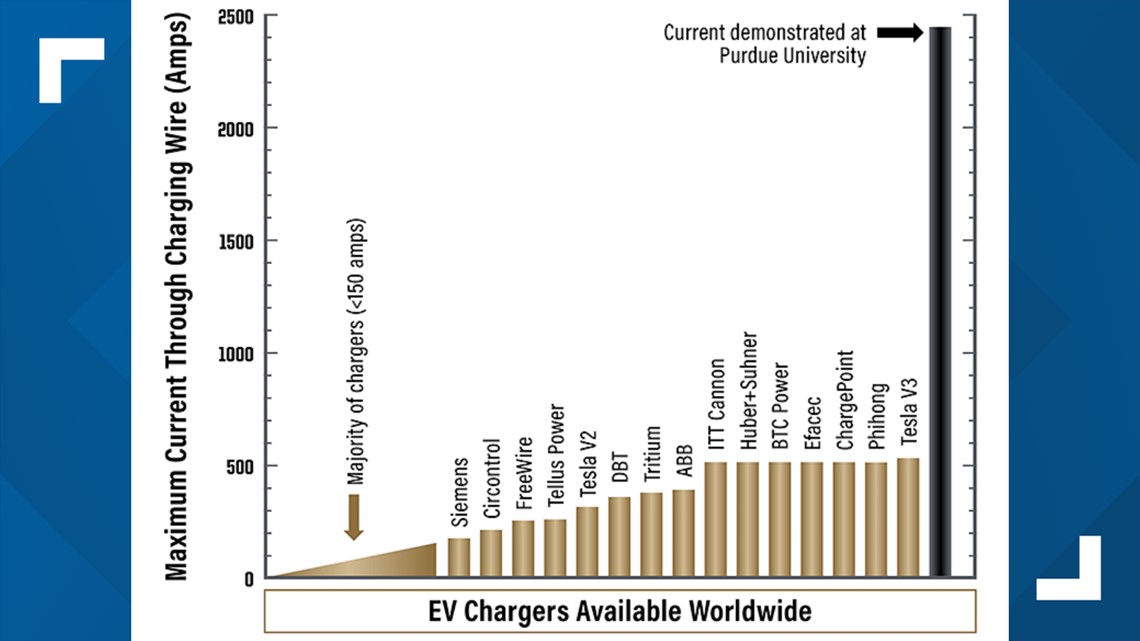WEST LAFAYETTE, Ind. — After months of doing her own homework, middle school teacher Katrina Elliott, along with her husband, decided their family’s new car should be electric.
“We’d been thinking about it for a long time,” she said. “Part of it was trying to take care of the environment.”
Plugging in instead of fueling up can also save them money. Elliott’s husband commutes about 60 miles roundtrip every day.
“The gas is psychotic, and we knew this would save a lot of money in the long-term,” Elliott said.
There’s just one downside: After 95 miles, the Elliott’s car needs to recharge – which, like every electric car, takes hours.
But researchers at Purdue University say they’ve come up with technology that reduces charging time from hours down to just minutes.
According to an announcement from Purdue, “Engineers have invented a new, patent-pending charging station cable that would fully recharge certain electric vehicles in under five minutes – about the same amount of time it takes to fill up a gas tank.”
“We are delighted with the outcome,” Mechanical Engineering Professor Issam Mudawar told 13News. Mudawar led the research and has taught at Purdue for 37 years.
Mudawar and his students partnered with Ford Motor Company on the project.
Heat limits how much electrical current can be supplied through a traditional charging cable. But this technology uses a cooling method to allow more current to flow through without overheating.


Purdue engineers plan to work with charging cable manufacturers to further test the prototype over the next two years.
“We are very confident that charging companies in particular can adopt the technology fairly quickly,” Mudawar said.
The technology comes at the same time Indiana and several neighboring states begin work to build an electric vehicle charging network to make it easier to drive electric vehicles longer distances across the Midwest by the year 2030.
“That is going to contribute to a better environment for electric vehicles and a better market, for sure,” Mudawar said.
The movement to make electric cars more mainstream could be just down the road.
“[I’m] super excited,” Elliott said. “It changes everything for us in the way we can use our vehicle.”

